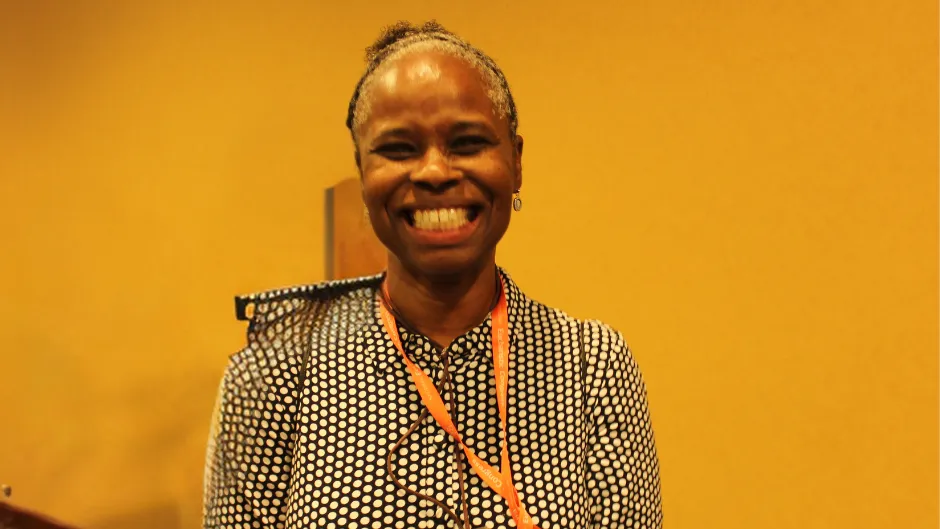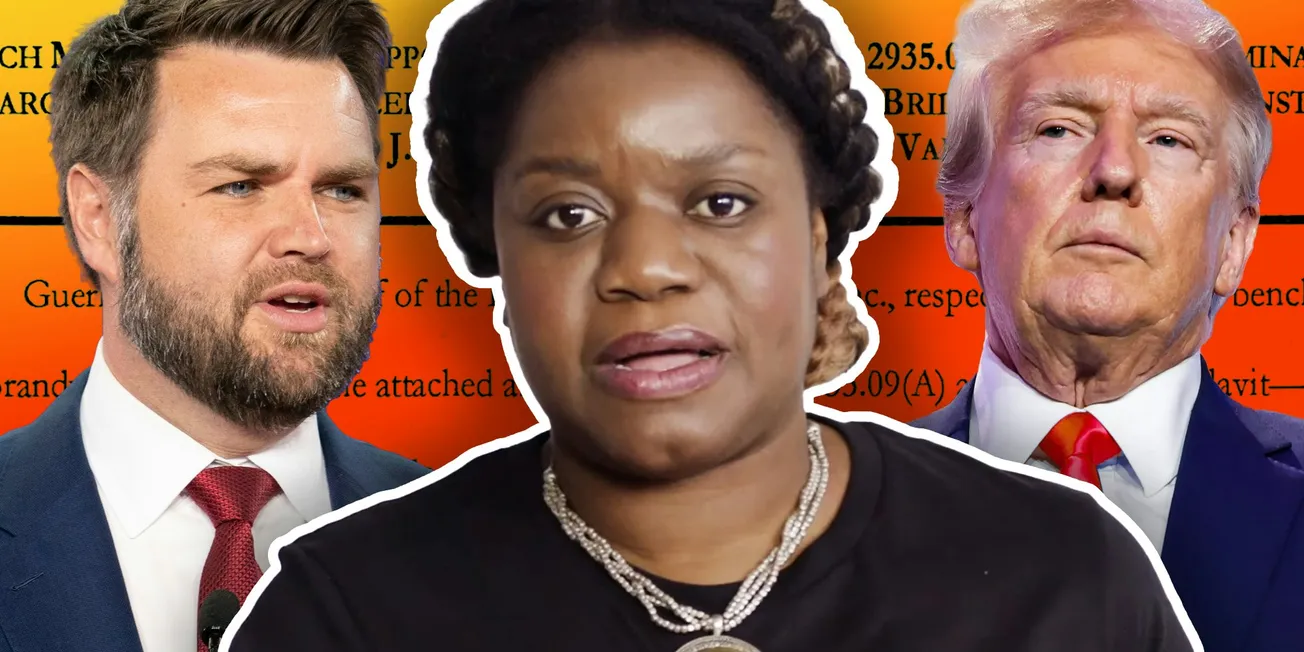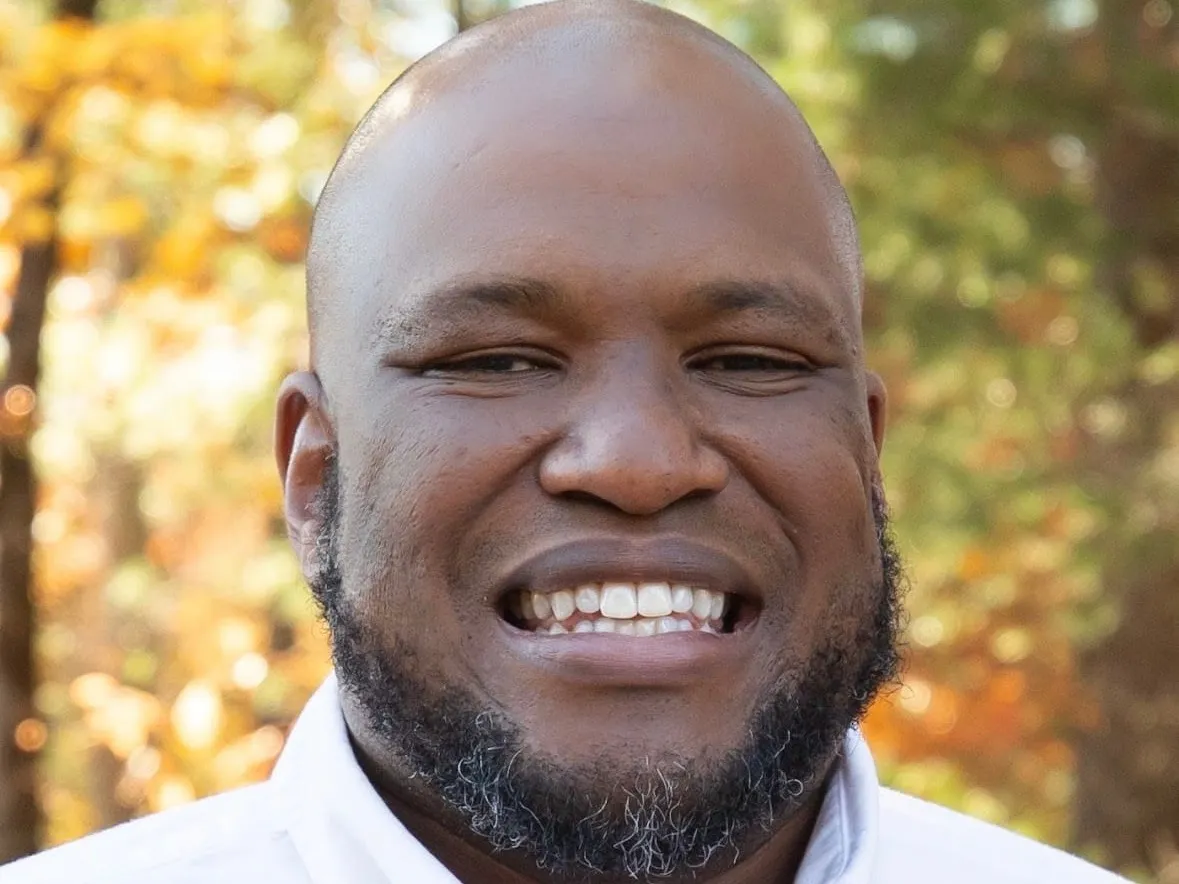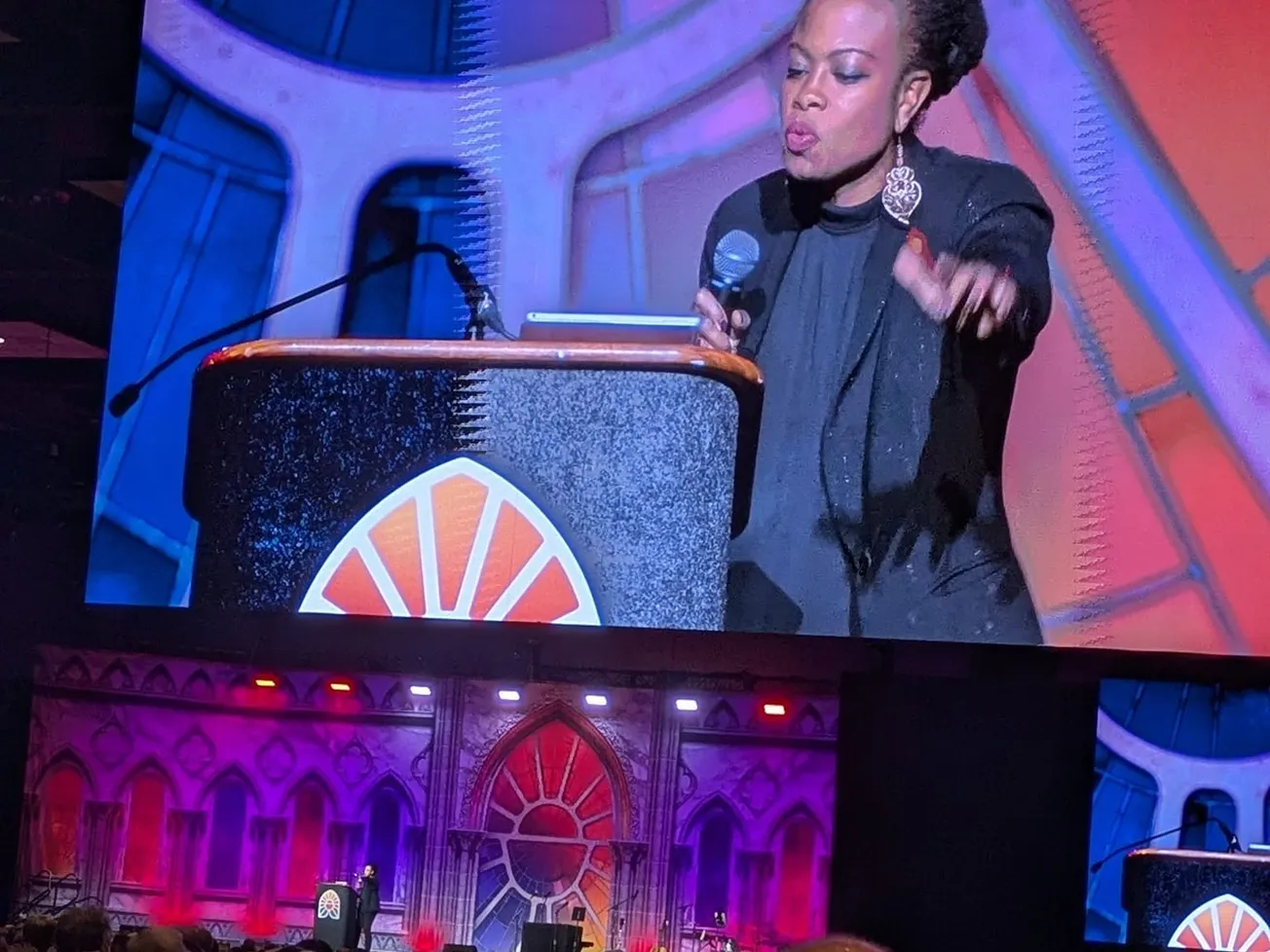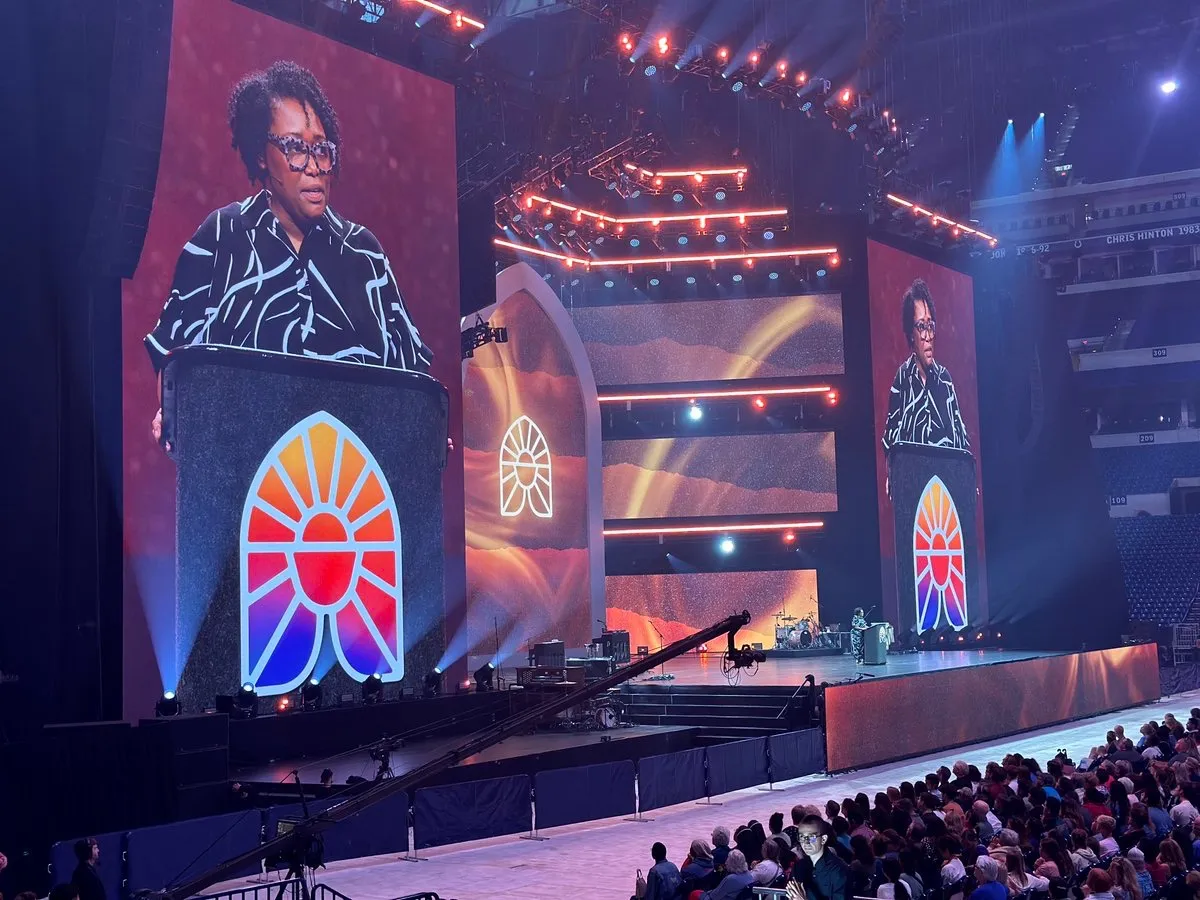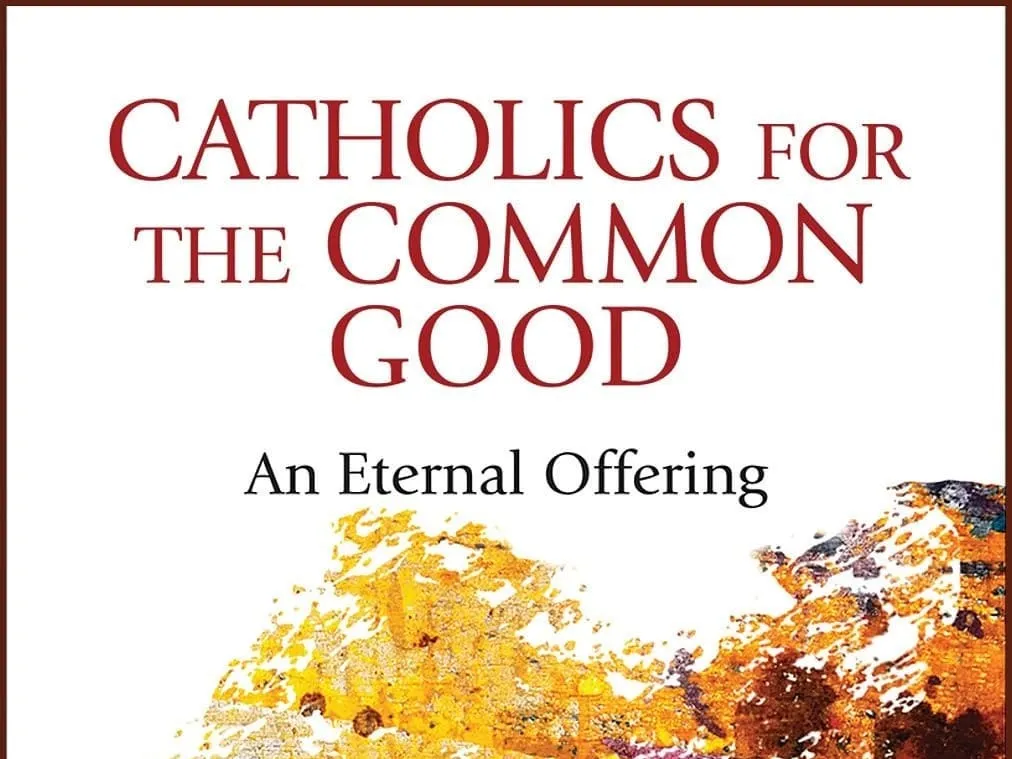As I walked the crowded convention center halls of the 10th National Eucharistic Congress in July, I had my eyes peeled for a religious sister with whom I could discuss her journey and experiences at the event. As I scanned the crowded hallways for a sister in a habit, my eyes landed on a petite woman with sunglasses and a black-and-white dress. I was immediately prompted by the Holy Spirit to approach her.
That woman’s name is Latonja Taylor and she is a novice with the Poor Clares of Clarisse Monastery of San Leonardo in Montefalco, Italy. I sat down with her to discuss her conversion, discernment into religious life, and her experience at the Congress.
Editor’s note: This interview has been edited for length and clarity.
Briana Jansky: Let’s start at the beginning when you were a child.
Latonja Taylor: I grew up on the South Side of Chicago with Baptist parents who were involved with the Norfleet Brothers singing group. My mother was a beautiful soprano singer, and different churches would ask her to come and sing. We were not devout Baptists. We didn’t study the Bible regularly, but we did learn about Jesus through music. I eventually became curious about the Bible and began reading the Book of Revelation. It really opened my eyes to the fact that there are angels, demons, and a spiritual war. However, there is also a celebration in that God conquers all in the end, and that really opened my eyes.
BJ: Who was spiritually influential in your life?
LT: I think that out of everyone, my grandmother was the most influential. She was the one person who always went to church every Sunday. When I was little and spent the weekends with her sometimes, she taught me the Our Father. She would say it with me, and would always tell me not to go to bed without saying my prayers. I think also the lack of presence of the Virgin Mary in my household led me to think about it more. Theologically speaking, if Jesus was born as a human, then where was his mom and where did she fit into the picture in all of this?
BJ: Tell me about your conversion to Catholicism.
LT: I went on a trip to Europe and during the tour, we visited a lot of different churches. I didn’t know a lot about Catholicism at the time, but I was taken aback by how beautiful the churches were and the stories they told in their architecture. When people couldn’t read or write, they learned about the Gospels by looking at the stained glass windows! When I got to St. Peter’s Basilica, two things drew me in: the Pietà and a group of nuns. I remember being moved by how beautiful the Pietà was. I saw nuns walking around and became really intrigued by their habits and all of the beautiful colors. That was the moment I found myself thinking, “How can I become Catholic?”
Not too long after, I began dating a Catholic guy and attended my first Mass at Holy Name Cathedral in downtown Chicago. Another strong moment for me was attending an all-women’s retreat and hearing a woman talk about her fight with depression after losing several family members. That night, I lit a candle and went into prayer mode. I didn’t know Jesus could heal all of my mental burdens. I really wanted to know him deeper.

BJ: What has the process of discernment looked like for you post-conversion?
LT: After I converted, I went on a pilgrimage and visited Lourdes, France; Fatima, Portugal; Spain, and the Holy Land. During the trip, it just hit me that God was listening to me and he was answering me. I had a particular experience when I visited the tomb of Jesus where the Holy Spirit came upon me and I could not stop crying. I couldn’t control it. It felt like I was grabbing for something but had nothing to grab. I was totally vulnerable. Finally, this little voice in my head said “Tonja, let it go.” So I did. I let everything go and started praying Lectio Divina.
I had my “aha” moment when I read the Parable of the Rich Man, where Jesus tells him to get rid of his possessions and follow him. Shortly after, a deacon told me I should become a nun! I looked at different houses and finally the pieces came together and I ended up talking to a mother superior in Montefalco, Italy. She provided everything I needed.
I’ve learned through this that all God asks is to for us to put him first. The best time to listen to him is during Adoration. I try to make it once a week.
BJ: Which talks at the Congress have been some of your favorites?
LT: Fr Mike Schmitz was amazing, talking about the Eucharist being the food of eternal life and about the tennis player on the run to Jesus.
Sr Josephine Garrett’s exhortation and call to repentance was strong. She emphasized how important the process of repentance for us is in getting closer to Christ. When the angels hear that we repent, they get excited. She had so much courage in talking to the bishops, the priests, the families, and the single people. Sr Josephine has a way of saying things that are not warm and cozy but will save your soul.
Trent Horn’s talk on fundamentalist attacks on the Eucharist was also very informative and factual.
BJ: What is your hope for the Church going forward?
I hope this event wakes people up. I hope that through all of the singing, praising, and worship during the Adoration, people will remember how they felt. I know people have been feeling the Holy Spirit. I'm hoping that God puts on everyone’s heart the Sacred Heart of Jesus and the clear understanding of the importance of Jesus Christ’s sacrifice and what it means to receive his flesh, body, blood, soul, and divinity into them, and that he is within us. We are walking tabernacles.
He is alive, he is present, and he is with you. You are a tabernacle, he is alive, and he is with you always. When people go back to Mass and see that host, they will come back to this Congress in their mind and recognize what has been engraved into their soul: that Christ is right there in the priest's hand, and you are about to receive him. Give him thanks with love. Teach your children. They will be the ones to spread the Gospel.
Briana Jansky is a freelance writer, author, blogger, and host of the Geeks For Jesus podcast.


